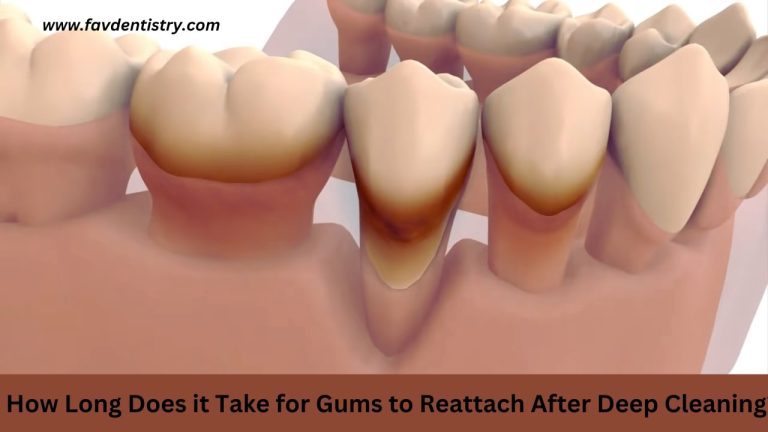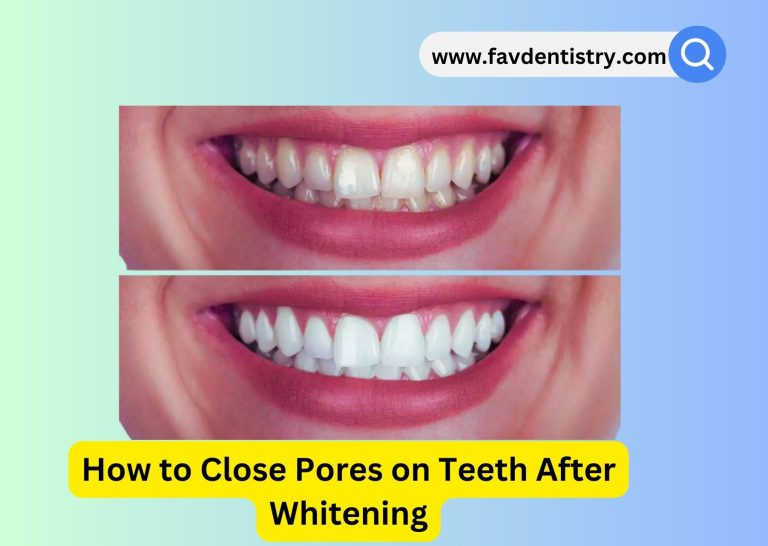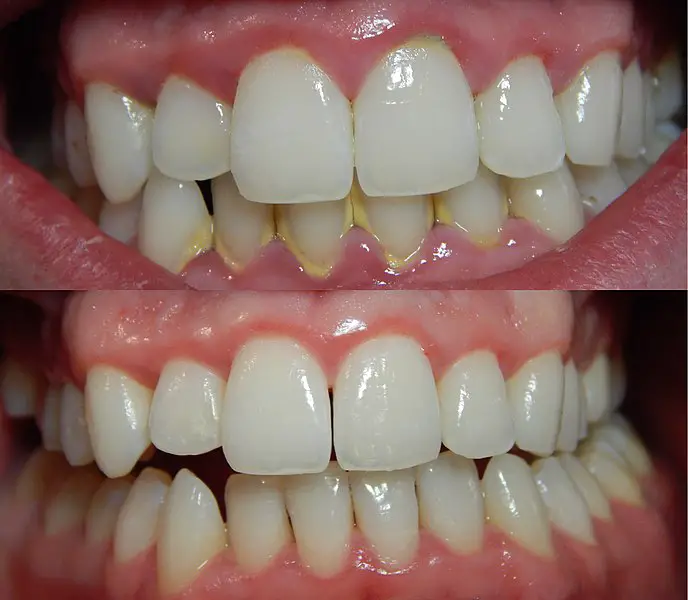What Do Dehydrated Teeth Look Like? Unveiling the Disturbing Truth!
Dehydrated teeth appear dull and brittle. When teeth lack moisture, they lose their usual shine and become more prone to cracks and fractures.
In addition, dehydration can cause teeth to become discolored and more susceptible to tooth decay. Adhering to proper oral hygiene and staying hydrated with an adequate intake of water can help maintain the health and appearance of teeth. By regularly brushing, flossing, and visiting the dentist, individuals can prevent dehydration-related issues and preserve the natural beauty of their teeth.
Remember, keeping teeth hydrated is crucial for their overall health and strength.
Unveiling The Disturbing Truth: Dehydrated Teeth
Dehydration can have a profound impact on the health and appearance of teeth. One clear sign of dehydrated teeth is color changes and texture variance. When the body lacks sufficient hydration, the teeth may appear dull and discolored, with a loss of their natural luster. Additionally, the texture of dehydrated teeth may feel rough or uneven, and they may become more prone to stains and plaque buildup.
Furthermore, inadequate hydration can also lead to increased tooth sensitivity. Dehydrated teeth often experience heightened sensitivity to hot and cold temperatures, making it uncomfortable to consume certain foods and drinks.
It is essential to note that dehydration not only affects the outward appearance of teeth but also has adverse effects on overall oral health. Inadequate hydration can contribute to a dry mouth, which reduces saliva production and leads to an increased risk of tooth decay and gum disease.
In conclusion, prioritizing proper hydration is crucial for maintaining optimal dental health. By ensuring an adequate intake of water and following a consistent oral hygiene routine, individuals can minimize the negative effects of dehydration on their teeth and maintain a vibrant and healthy smile.
Visual Symptoms Of Dehydrated Teeth
Dehydrated teeth exhibit visible signs such as increased tooth sensitivity, discoloration, and enamel erosion. These symptoms can indicate a lack of hydration and may require dental intervention to prevent further damage.
Enamel’s Missed Luster: Identifying Matte Teeth
Dehydrated teeth can exhibit a lack of luster in their appearance, often appearing matte instead of glossy. The enamel, which is the outermost layer of the teeth, may lose its natural shine and become dull. This can affect the overall aesthetic appeal of the teeth and may result in a less vibrant smile.
Quintessential Signs: Color And Transparency Shifts
One of the key visual indicators of dehydrated teeth is a change in color. Dehydrated teeth may appear slightly yellow or have a darker hue compared to well-hydrated teeth. Additionally, transparency shifts may occur. Dehydrated teeth may lose some of their natural translucency, leading to a more opaque appearance.
Texture Nuances: A Comparison Of Hydrated Vs. Dehydrated Enamel
| Hydrated Enamel | Dehydrated Enamel |
|---|---|
| Smooth and glossy texture | Matte and less smooth texture |
| Strong and resilient | May become brittle and prone to damage |
| Natural shine and translucency | Loss of shine and reduced translucency |
Causes And Mechanics Behind Tooth Dehydration
Dehydrated teeth are a dental condition characterized by a lack of moisture, which can lead to various oral health issues. The causes of tooth dehydration can vary, but it is often a result of prolonged exposure to certain factors. The dehydration process involves the gradual loss of moisture from the teeth, which can occur due to a variety of reasons.
Common activities such as excessive consumption of sugary and acidic foods and drinks, as well as poor oral hygiene practices, can contribute to tooth dehydration. These activities can strip the teeth of their natural moisture, leaving them susceptible to damage. Additionally, a decrease in saliva production can further exacerbate tooth dehydration.
Saliva plays a crucial role in maintaining the moisture in our teeth. It helps in the remineralization process by supplying essential minerals that strengthen the teeth. When saliva production is compromised, such as in cases of dehydration or certain medical conditions, it can negatively impact tooth health and contribute to tooth dehydration.
Understanding the causes and mechanics behind tooth dehydration is essential for identifying potential risk factors and taking steps to prevent this condition. By maintaining good oral hygiene practices and avoiding activities that contribute to tooth dehydration, we can promote healthy and well-hydrated teeth.
Dehydrated Teeth: Prevention And Management
Proper oral hygiene plays a crucial role in preventing dental dehydration. To keep your teeth hydrated and healthy, follow these step-by-step guidelines:
- Brush your teeth twice daily using a fluoride toothpaste to strengthen the enamel and prevent dryness.
- Floss regularly to remove food particles and plaque buildup, which can lead to dehydration.
- Use an alcohol-free mouthwash to maintain moisture levels in your mouth.
- Stay hydrated by drinking sufficient water throughout the day. Limit your consumption of caffeinated and sugary beverages, as they can contribute to dryness.
- Avoid smoking or using tobacco products, as they can cause dry mouth.
Rehydrating your smile requires consistent effort. Consider the following best practices and recommendations:
- Chew sugar-free gum to stimulate saliva production and moisturize your mouth.
- Suck on sugar-free hard candies or lozenges to increase saliva flow.
- Use a humidifier in your room to add moisture to the air.
- Visit your dental professional regularly for check-ups and cleanings. They can provide personalized advice on managing dehydration effects.
Remember, maintaining optimal hydration is essential for your overall oral health. By following these preventive measures and seeking the guidance of dental professionals, you can ensure your teeth stay hydrated and maintain their natural shine.
Conclusion
Recognizing the signs of dehydrated teeth is crucial for maintaining optimal dental health. From tooth sensitivity and discoloration to weakened enamel and cavities, these symptoms should not be ignored. By practicing good oral hygiene, drinking enough water, and limiting sugary and acidic foods, you can prevent dehydration and preserve the health of your teeth.
Regular dental check-ups and professional cleanings are also essential for early detection and treatment of any dental issues. Remember, a well-hydrated mouth is a healthy mouth.



